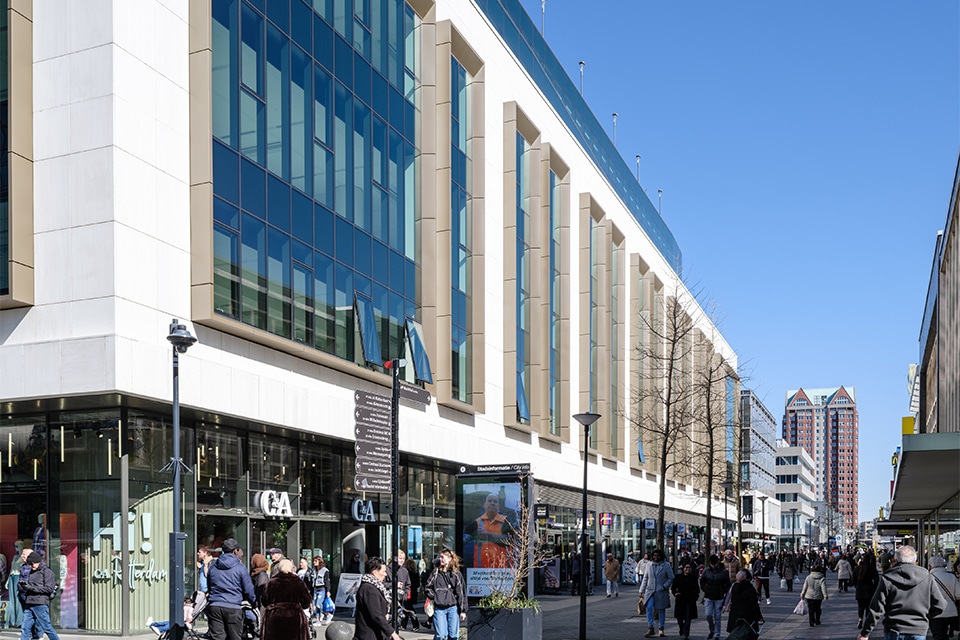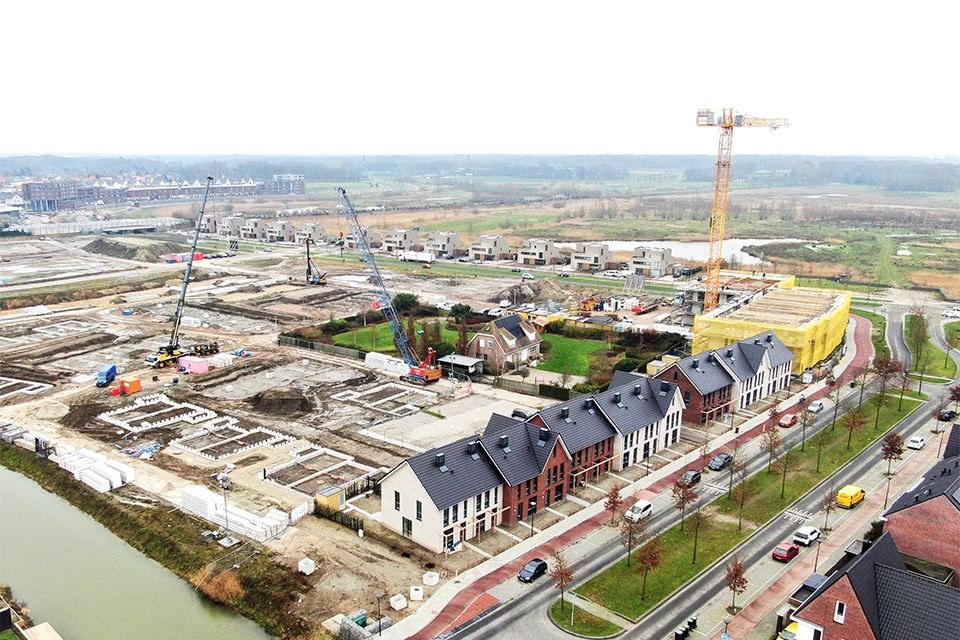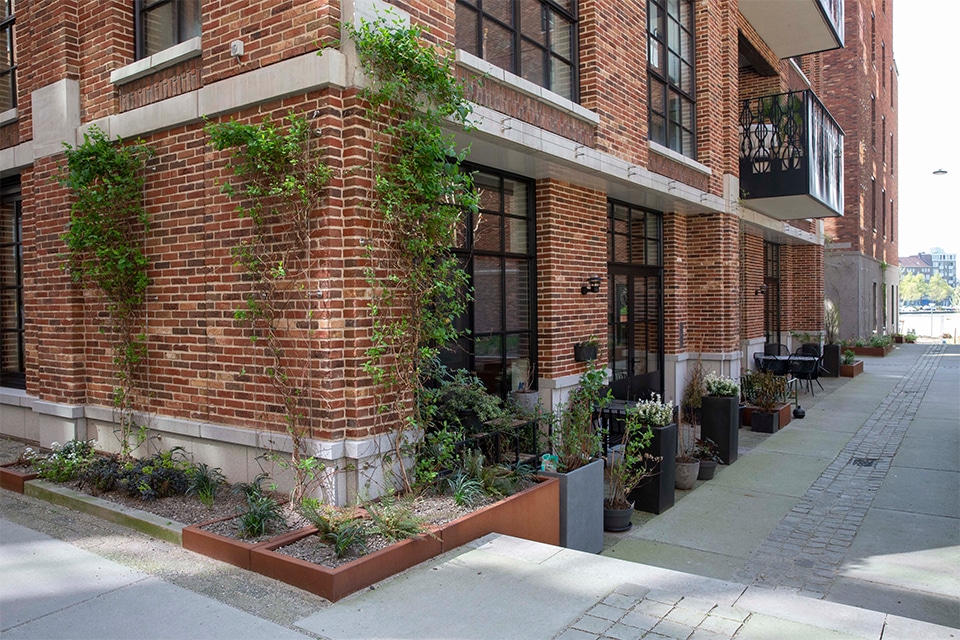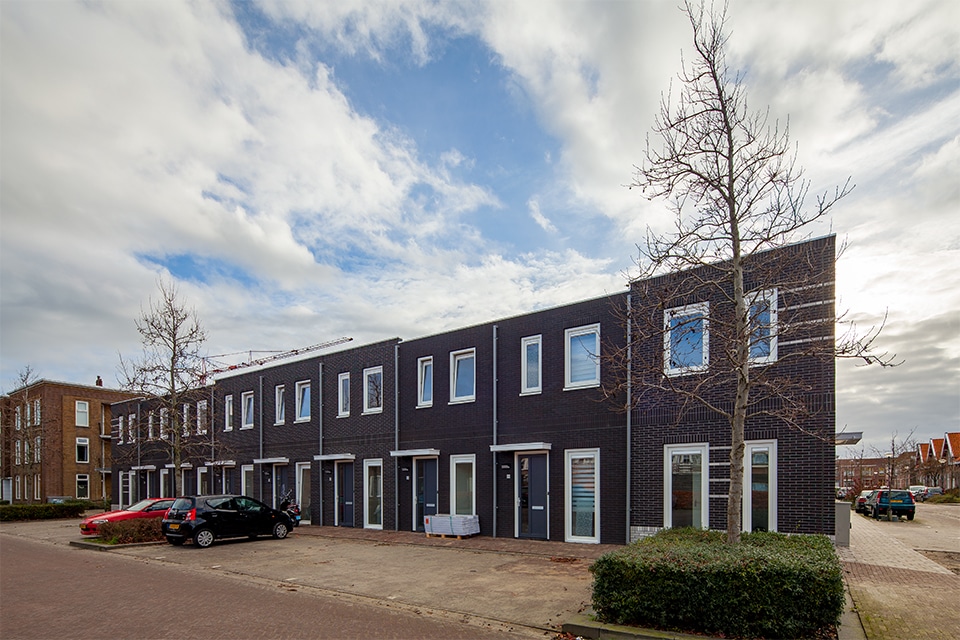
The inexhaustible power of plastic
Ploeg kozijnen has been the address in Nieuw-Vennep for plastic frames, windows, doors, sliding doors and dormers for more than 40 years. Whether it is new construction or renovation, private or business, the family business keeps the entire process under its own control. From advice, sales and production to assembly, maintenance and service. "This allows us to keep a maximum grip on quality, planning and sustainability," says B2B Manager Martien Akerboom.
Sustainability is one of the most important themes of recent years and is also a high priority at Ploeg window frames, Akerboom emphasizes. "Our plastic window frames are already sustainable in the base. The insulation value of both the chamber structure and glazing is high. Moreover, the window frames are installed airtight. This allows customers to save substantially on their energy costs and increases their living comfort."
Careful recycling
Ploeg's plastic window frames have an average life of at least 40 years and can be recycled up to 10 times, without any loss of quality. To make careful recycling possible, Ploeg window frames work together with profile supplier Deceuninck. "We actively collect old plastic window frames," says Akerboom. "And our plastic residual material is also cleaned and granulated in Deceuninck's closed-loop system. The resulting plastic granules form the basic raw material for new plastic window frames. Thanks to this process, 2.3 million old window frames are returned to the cycle every year."
When dismantling old window frames, waste streams are strictly separated. "This allows not only PVC, but also glass, rubbers and metals to be given a sustainable second life. Standard 15-20% recycled raw material is currently used in our window frames. For example, as core filling and in window sills. Over the next 10 years, this percentage of "donor material" will continue to increase. Not only because our knowledge in this area is increasing, but also because more and more old plastic window frames are becoming available in the chain. By giving the old plastic a second life, up to 90% can be saved on energy costs compared to completely new raw material production, while obtaining a raw material of exactly the same quality."
100% recycled profiles
"We have expressed the ambition to Deceuninck that we want to manufacture approximately 50% of our window frames from circular profiles by 2030," said Akerboom. "Out of this ambition, the Phoenix profile was born about two years ago; the first frame profile based on 100% recycled raw material, which is continuously being improved and refined." The 100% recycled profiles currently result in a 90% recycled window frame, he says. There are still new parts to be added, such as new rubbers and new hardware. "How can we make these parts circular as well? By discussing this with our suppliers, we want to get and keep the flywheel going."
The Phoenix window frame is a sleek model with a recessed profile 115 mm deep and a 5-degree slope. The frame is available as standard in Phoenix white, but can also be provided with a color film. Architects and end users can choose from as many as 50 diverse colors, allowing aesthetic integration into any building.
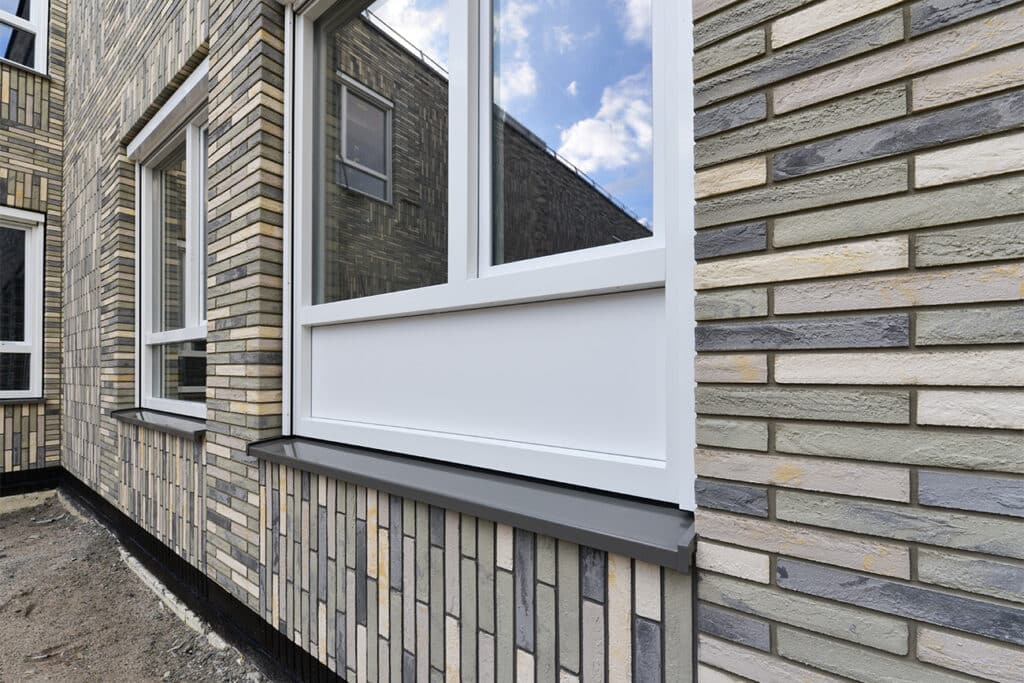
Nice references
Meanwhile, Ploeg kozijnen has implemented the first projects with Phoenix. As an example, Akerboom mentions the school complex of the Aloysius Foundation on the Avignonlaan in Eindhoven, where 30 circular window frames have been fitted on behalf of Dura Vermeer. Phoenix window frames were also used for Ploeg kozijnen's second commercial building on the Haverstraat in Nieuw-Vennep. Currently, Ploeg kozijnen is involved in the sustainable renovation of 40 apartments in Rotterdam, commissioned by Heijmans. "Sustainability is a core value of Heijmans. We have committed to a 100% circular construction," says Marc Molenschot, Project Coordinator Renovation at Heijmans. "The cooperation with Ploeg window frames fits this seamlessly. Together with various partners we help owners' associations to improve their buildings and make them more sustainable. Ploeg takes care of everything, from advice to warm-up and installation. It is also very nice to know that Ploeg frames also develops its own sustainable initiatives. The Phoenix window frame is a good example of this. All 40 apartments in Rotterdam will be fitted with these 'future windows'. The old plastic window frames that are released in the process are carefully disposed of and processed into new raw materials. This is how we complete the circle."
SMART objectives
For Ploeg window frames, sustainability also relates to its housing and operations. "About 3 years ago we formulated our SMART goals for 2030," said Akerboom. "The main goal is to save 30% in CO2-emissions and environmental costs of purchased goods and services. Looking at our internal operations, we aim to achieve savings of 50%. Here we are looking at our products, processes, housing, mobility and people. We actively seek opportunities to produce in a cleaner and more energy-efficient manner. There are some 1,500 solar panels on our business premises on Pesetaweg and Haverstraat, generating most of our energy needs sustainably. We use LED lighting almost everywhere and both buildings are equipped with EV charging stations. Starting next year, we will be reducing our CO2 that we currently emit, in addition, offset it with the planting of trees. All with a view to a sustainable future."
